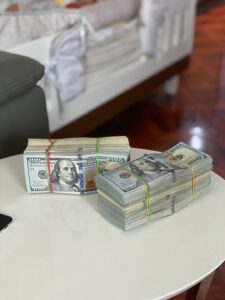Understanding Forex Reserves: What They Are and Why They Matter
Forex reserves, also known as foreign exchange reserves or foreign currency reserves, play a crucial role in the stability and economic well-being of a country. These reserves consist of foreign currencies held by central banks and monetary authorities. In this article, we delve into the concept of forex reserves, their importance, and their impact on a nation’s economy.
What are Forex Reserves?
Forex reserves are the assets held by a country’s central bank, typically in the form of foreign currencies like the US dollar, euro, yen, or pound sterling. These reserves are accumulated through various channels, such as export earnings, foreign direct investments, and borrowings from international financial institutions.
The primary purpose of forex reserves is to ensure stability in the country’s currency exchange rate and provide a cushion during times of economic uncertainties. By holding a significant amount of foreign currencies, a country can manage its exchange rate, intervene in the foreign exchange market, and maintain confidence in its currency.
Components of Forex Reserves
Forex reserves primarily consist of three components:
1. Foreign Currencies: The bulk of forex reserves is held in the form of major foreign currencies, such as the US dollar. These foreign currencies provide liquidity and serve as a medium of exchange in international transactions.
2. Gold: Central banks also hold a portion of their reserves in gold. Gold acts as a hedge against inflation and provides stability to a country’s overall reserves.
3. Special Drawing Rights (SDRs): SDRs are a supplementary reserve asset created by the International Monetary Fund (IMF). They are allocated to member countries based on their IMF quota. SDRs are a composite basket of major currencies, including the US dollar, euro, yen, and pound sterling.
Why Forex Reserves Matter
Forex reserves play a vital role in ensuring economic stability and safeguarding a country’s financial position. Here are some key reasons why forex reserves matter:
1. Currency Stability: Forex reserves provide a country with the necessary ammunition to stabilize its domestic currency. By buying or selling foreign currencies in the foreign exchange market, central banks can influence the exchange rate and prevent excessive volatility.
2. External Debt Servicing: Forex reserves are instrumental in repaying external debt obligations. A country with substantial reserves can meet its debt repayment commitments without relying on expensive borrowings or facing default risks.
3. Import Cover: Forex reserves act as a cushion against adverse external shocks, such as a sudden increase in imports or a decline in export earnings. Sufficient reserves ensure that a country can continue to import essential goods and services even during challenging economic times.
4. Confidence and Credibility: High forex reserves instill confidence in international investors and lenders. They signal a country’s ability to weather financial crises and honor its financial obligations. This confidence attracts foreign direct investments and helps maintain a stable macroeconomic environment.
5. Monetary Policy Independence: Adequate forex reserves provide central banks with the flexibility to implement independent monetary policies. With a strong reserve position, central banks can avoid excessive currency depreciation, control inflation, and foster long-term economic growth.
Case Study: China’s Massive Forex Reserves
China, the world’s second-largest economy, has the largest forex reserves globally, exceeding $3 trillion. China’s massive reserves are a result of its export-driven economy and strict capital controls.
China’s forex reserves have several implications. First, they provide a cushion against economic shocks and ensure the stability of the Chinese yuan. Second, these reserves enable China to implement policies aimed at promoting economic growth and maintaining monetary stability.
Additionally, China’s forex reserves give the country significant influence in international financial markets. With a considerable war chest of foreign currencies, China has the ability to invest in foreign assets, diversify its holdings, and exert influence on global financial markets.
Conclusion
Forex reserves are a critical component of a country’s economic stability and financial well-being. They provide a buffer against external shocks, ensure currency stability, and instill confidence in international investors. Understanding the importance of forex reserves allows individuals and policymakers to appreciate the efforts made to build and maintain them.






